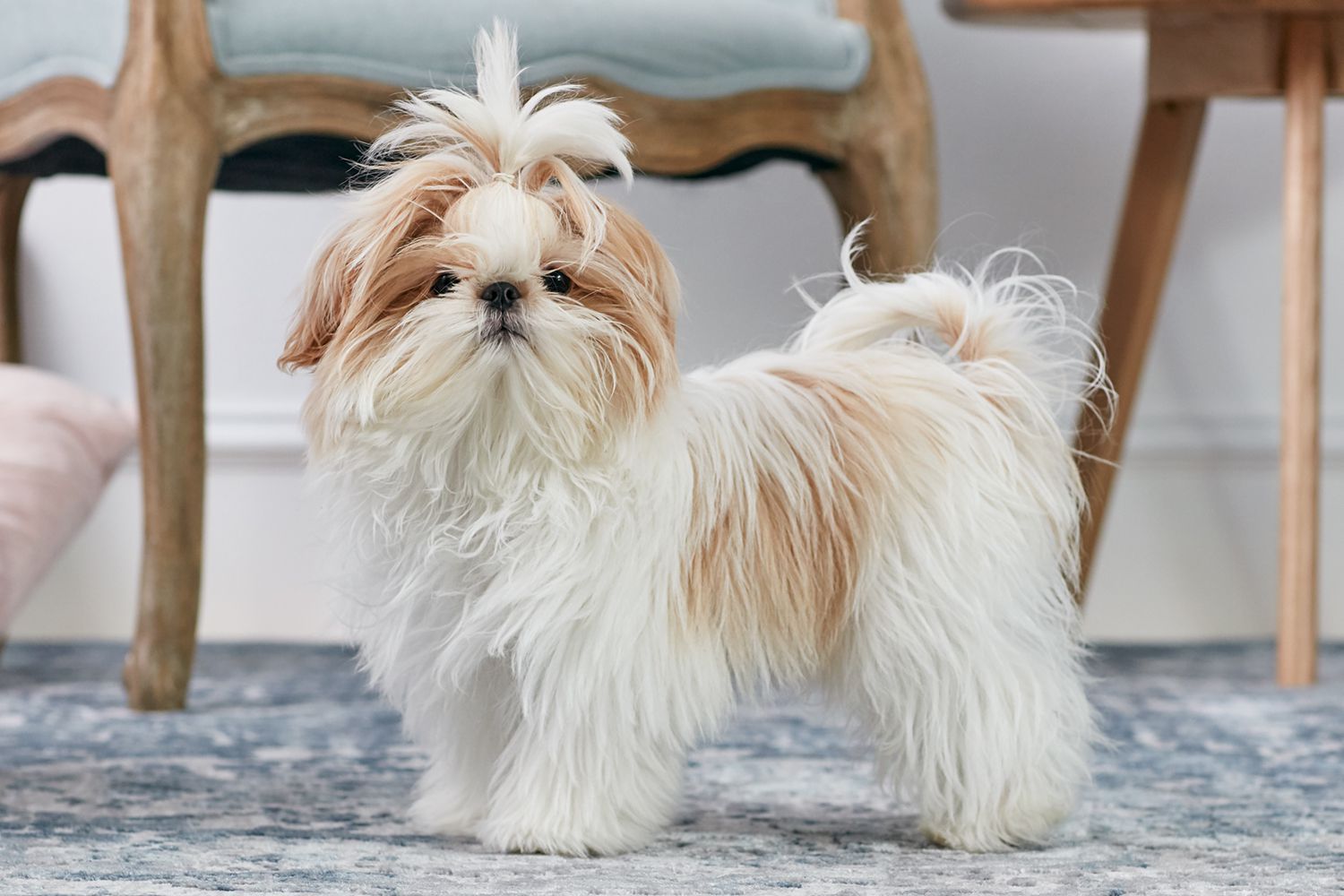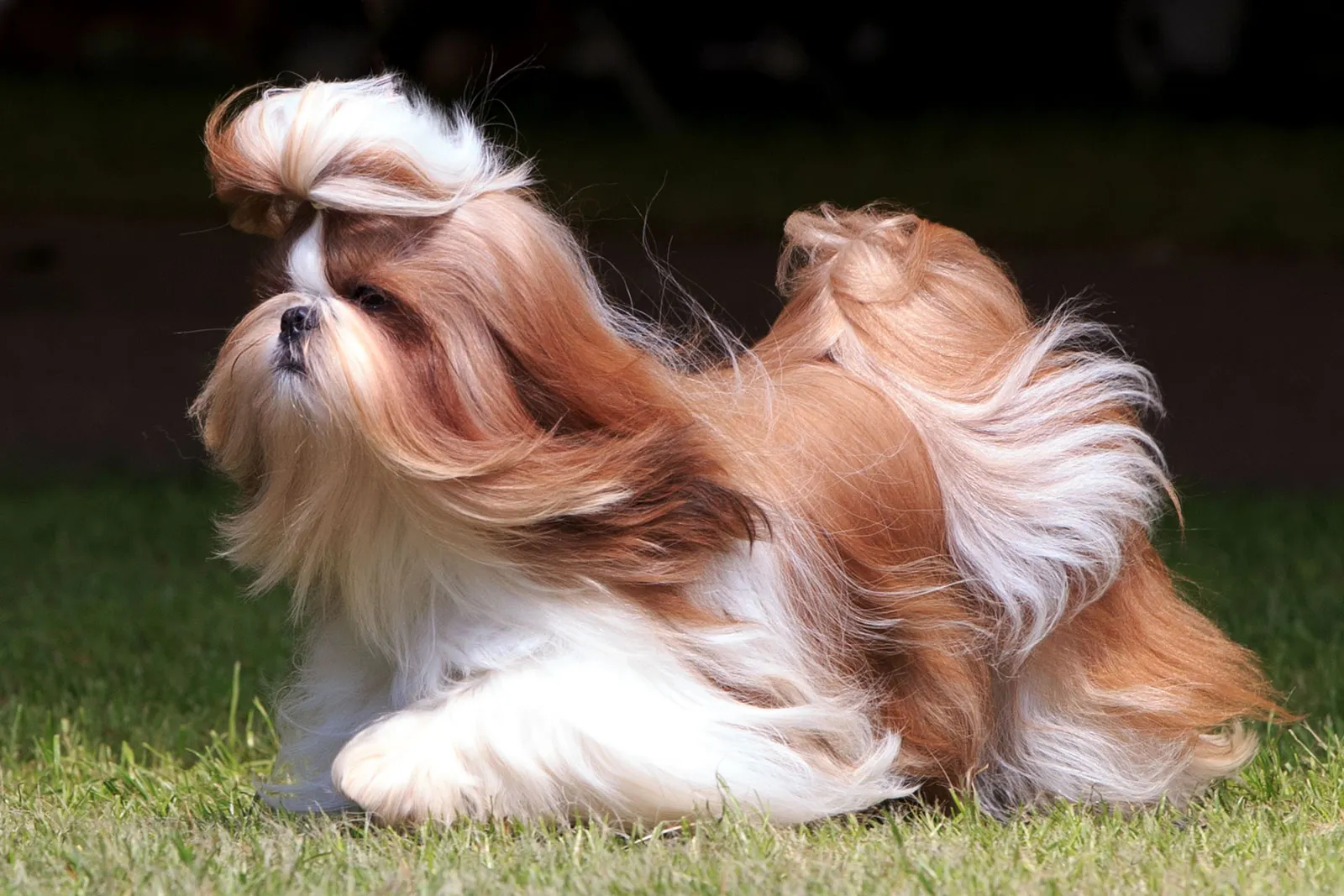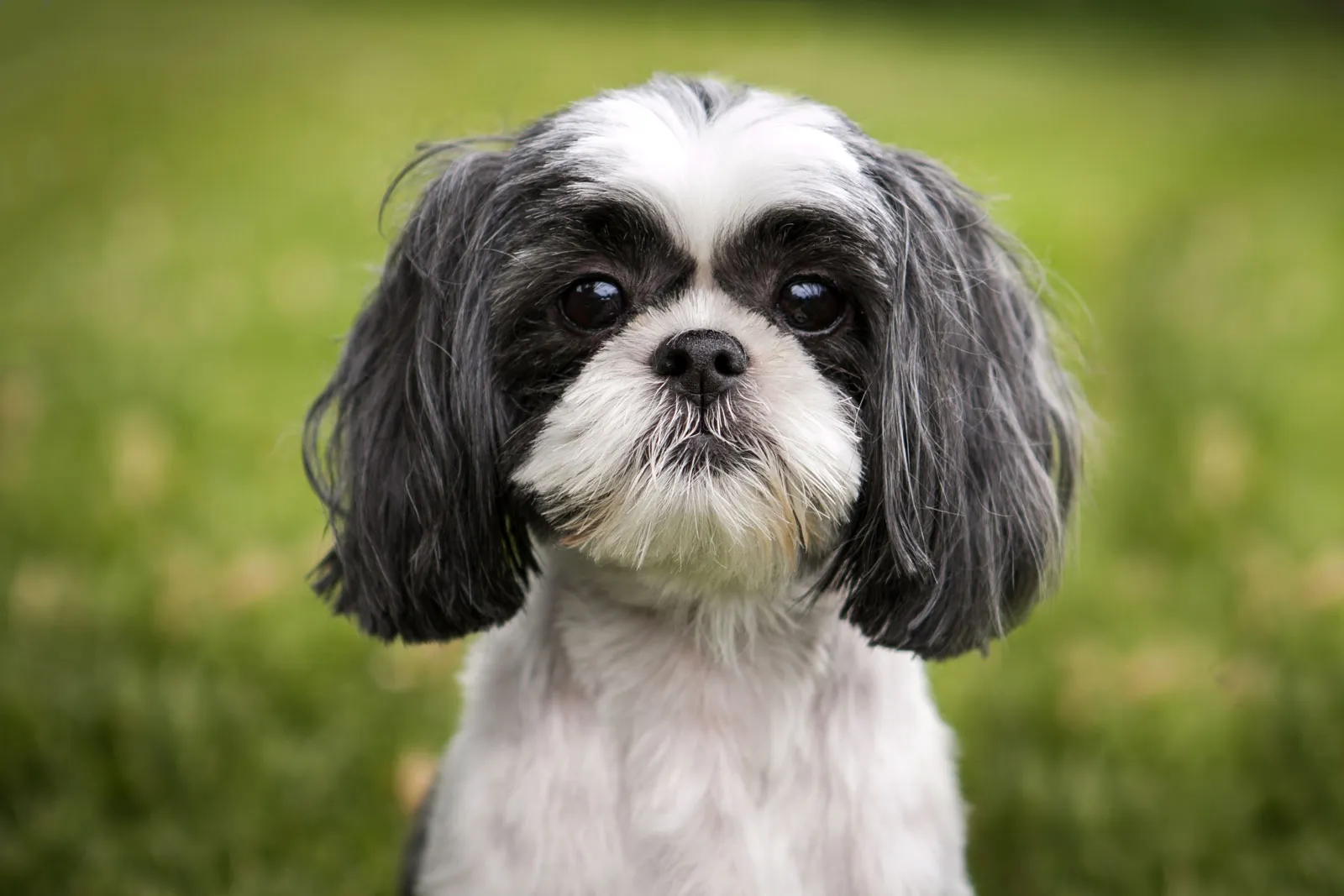
The Shih Tzu, whose name means "Lion Dog" in Mandarin, is an ancient breed with royal roots. Developed in China, possibly as early as 1,000 years ago, Shih Tzus were bred as companions for Chinese royalty, particularly during the Ming and Qing dynasties. They were treasured palace pets, often living in luxurious conditions and even guarded by eunuchs.
It’s believed that Shih Tzus descended from crosses between Tibetan breeds, like the Lhasa Apso, and Pekingese. Their purpose was purely companionship, a role they continue to fulfill perfectly today.
After nearly vanishing during the Chinese Revolution, the Shih Tzu was saved by a small group of dedicated breeders and made its way to Europe and the Americas in the early 20th century. Today, the Shih Tzu remains one of the world’s most beloved toy breeds, consistently ranking highly in popularity due to its affectionate nature, charming appearance, and adaptability.
Its timeless appeal as a friendly, manageable-sized companion has made the Shih Tzu a favorite for families, seniors, and city dwellers alike.
The Shih Tzu is a sturdy, compact toy breed with a luxurious flowing coat and a sweet expression.
• Height: 9–10.5 inches (23–27 cm)
• Weight: 9–16 pounds (4–7 kg)
• Build: Solid, compact, and slightly longer than tall
• Coat: Long, dense, and flowing double coat
• Color: Wide variety including gold, white, black, brindle, liver, and combinations
• Head: Broad and round with a short, square muzzle
• Eyes: Large, round, and dark, conveying warmth and friendliness
• Ears: Large, heavily coated, and drop down close to the head
• Tail: Plumed and carried curled over the back
Their flowing coat and regal posture give them the appearance of a tiny, living lion.
The Shih Tzu is celebrated for its affectionate, outgoing, and cheerful nature.
• Affectionate: Deeply attached to its family and loves companionship.
• Charming: Playful and good-natured; loves to entertain and be adored.
• Alert: Makes a good watchdog, though not aggressive.
• Adaptable: Thrives in various living situations, from city apartments to suburban homes.
• Gentle: Generally good with children and other pets.
Shih Tzus were bred to be lap companions — and they continue to excel in that role.

The Shih Tzu is ideal for:
• Families seeking a friendly, affectionate companion
• Seniors and individuals wanting a low-exercise, high-companionship dog
• Apartment dwellers
• Owners who enjoy grooming or want a dog with a luxurious appearance
However, it may not be ideal for:
• Those unwilling to maintain a high-maintenance coat
• Owners seeking a highly athletic or rugged outdoor dog
• People preferring extremely independent or aloof pets
While not high-energy, Shih Tzus do require specific care, particularly for their coat and health.
• Exercise: Low to moderate; daily short walks and indoor play are enough.
• Training: Intelligent but can be stubborn; early socialization and patient, positive methods work best.
• Grooming: Intensive; daily brushing or professional grooming every few weeks.
• Living Environment: Very adaptable; excellent for apartments or houses.
• Feeding: Balanced diet suited for small, less active breeds.
Attention to dental health is important, as small breeds are prone to dental issues.
The Shih Tzu is generally a healthy breed but can be prone to:
• Brachycephalic syndrome (due to their short muzzle)
• Eye problems (e.g., cataracts, dry eye)
• Hip dysplasia
• Ear infections (because of their heavy ear hair)
Their lifespan typically ranges from 10 to 16 years with proper care.

• Lhasa Apso: Larger and more independent; Shih Tzus are softer and more companion-oriented.
• Maltese: The Maltese is lighter and even more delicate; Shih Tzus are sturdier.
• Pekingese: Both are royal lapdogs, but Pekingese are heavier-boned and more dignified, while Shih Tzus are more outgoing.
If you desire a loyal, affectionate, and charming companion who will happily sit by your side — or in your lap — and brighten your days with their cheerful disposition, the Shih Tzu is an excellent choice. However, grooming commitment is non-negotiable unless you choose a shorter, more manageable pet trim.
Prospective owners must be ready to care for their coat and monitor for potential breathing issues associated with their flat faces.
When choosing a Shih Tzu, find breeders who screen for eye and respiratory issues. Many breed-specific rescues also have adorable Shih Tzus looking for homes.
United Pet Club offers grooming resources, microchip registration, and health support for Shih Tzu owners.